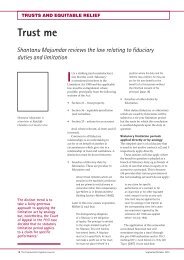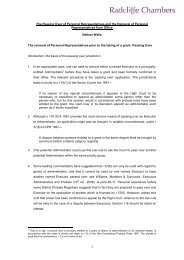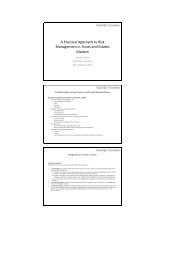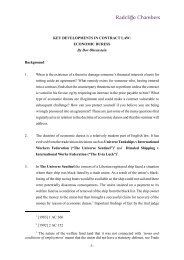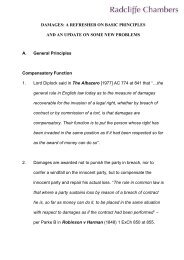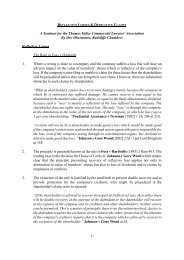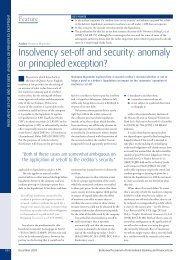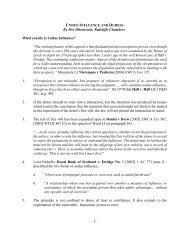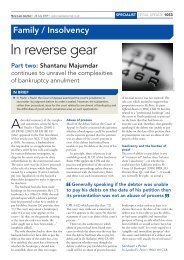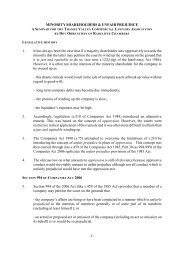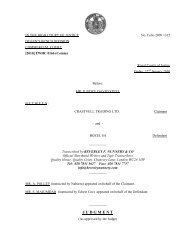1 | Page - Radcliffe Chambers
1 | Page - Radcliffe Chambers
1 | Page - Radcliffe Chambers
You also want an ePaper? Increase the reach of your titles
YUMPU automatically turns print PDFs into web optimized ePapers that Google loves.
MINORITY SHAREHOLDERS & UNFAIR PREJUDICELEGISLATIVE HISTORY1. Where a majority shareholder acts oppressively towards the minority then the minority haslong been able to petition the court to wind up the company on the ground that it is just andequitable to do so, (see now s.122(1)(g) of the Insolvency Act 1986).2. However, it may not be in the interests of the minority shareholder for the company to bewound up:- the remedy is drastic and may result in the sale of company assets at break-up valuewithout regard to good-will;- long term company debts may become due immediately;- the winding-up process is slow; and- liquidation expenses are likely to be high.3. Accordingly, s 210 of Companies Act 1948 introduced an alternative remedy. This was basedon the concept of oppression but was applying restrictively by the courts and was thereforeoften more difficult to obtain than a just and equitable winding up.4. Section 75 of the Companies Act 1980 sought to overcome the limitations of s 210 byintroducing the concept of unfair prejudice in place of oppression; this jurisdiction waspreserved in s 459 of the Companies Act 1985 and Part 30 (ss 994-999) of the CompaniesAct 2006 replicates the unfair prejudice provisions of the 1985 Act.5. The old case law on what amounts to oppression remains relevant because oppressiveconduct inevitably amounts to unfair prejudice although not all conduct which is unfairlyprejudicial would have met the oppression test.SECTION 994 COMPANIES ACT 20066. Section 994 of the 2006 Act (like s 459 of the 1985 Act) provides that a member of a companymay petition the court on the grounds that2 | P a g e



